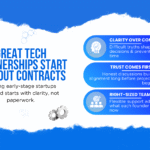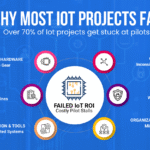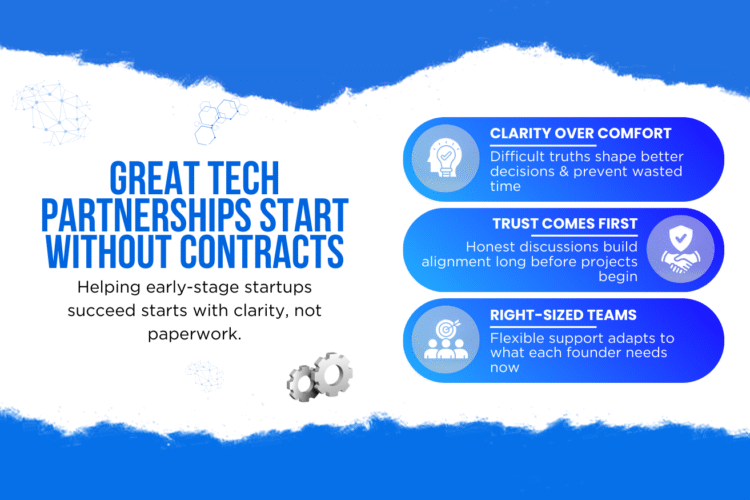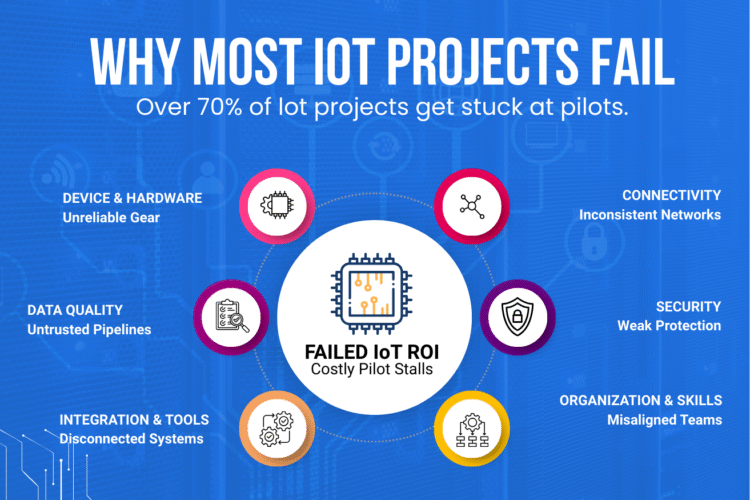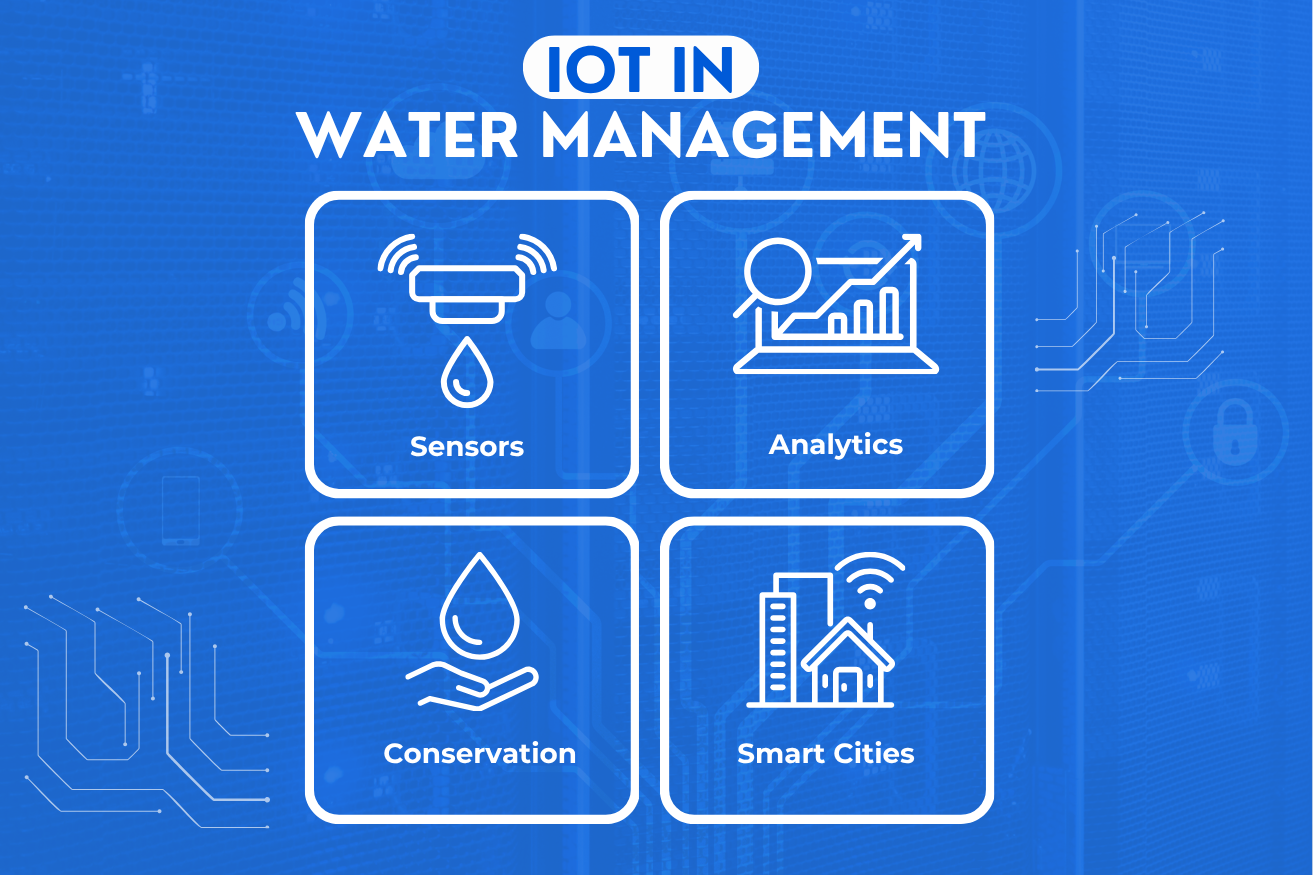
Introduction
In today’s rapidly urbanizing world, managing water efficiently is one of the biggest challenges for governments, industries, and communities. The Internet of Things (IoT) is reshaping how we approach this challenge through smart water management systems that enable real-time monitoring, predictive analytics, and automated control.
The integration of IoT in water management allows cities, industries, and utilities to achieve higher efficiency, reduce wastage, and ensure sustainable use of this precious resource.
What Is IoT and Water Management?
IoT and water management refers to the use of connected sensors, devices, and cloud platforms to collect and analyze water-related data. These systems enable smarter decisions across every stage of the water cycle — from sourcing and distribution to usage and treatment.
The Internet of Things water management approach is transforming conventional systems into smart water management solutions that can detect leaks, measure consumption, and optimize distribution without human intervention.
How IoT Improves Water Efficiency
1. Smart Water Monitoring Systems
A smart water management system uses IoT sensors and flow meters to track water levels, pressure, and quality. Data is transmitted to a central platform where it’s analyzed for anomalies, ensuring proactive maintenance and reduced downtime.
2. Leak Detection and Prevention
IoT-enabled smart water technology helps utilities detect even minor leaks instantly. Pressure sensors and data analytics pinpoint the issue before it escalates, saving thousands of liters daily.
3. Predictive Maintenance
By using IoT for water management, operators can predict when pumps, valves, or pipelines need servicing. This minimizes unplanned outages and extends equipment lifespan.
4. Water Quality Assurance
Water IoT systems continuously monitor pH levels, turbidity, and chemical balance. This is crucial for both municipal supply and industrial applications that depend on high water quality.
Applications of IoT in Smart Cities
The adoption of IoT in water management is central to digital water management in smart cities. These systems combine real-time data, automation, and predictive intelligence to build sustainable infrastructure.
1. Water Management in Smart Cities
In a smart water management in smart cities setup, IoT sensors are deployed across pipelines, reservoirs, and treatment facilities. They help manage distribution, detect leaks, and reduce energy use in water transport.
2. Smart Water Companies Leading the Way
Several smart water companies are investing in IoT water management platforms that use AI and cloud computing to create smart water management systems for municipal and industrial use.
3. Agriculture and Irrigation
In agriculture, IoT asset tracking helps manage irrigation with precision. Farmers use real-time soil and moisture sensors to avoid overwatering, conserving both water and energy.
Benefits of IoT in Water Management
- 💧 Resource Optimization: IoT helps balance water distribution across regions.
- ⚡ Energy Efficiency: Smart pumps and valves operate only when needed.
- 🧠 Data-Driven Insights: Utilities can plan for demand and detect usage trends.
- 🌍 Sustainability: Reduces water loss, ensuring long-term conservation.
- 🏙️ Resilience: Enables cities to respond quickly to crises like leaks or floods.
Where Is Smart Water From and How Is It Sourced?
Many ask, “Where is smart water from?” and “Where is smart water sourced?” — the answer lies in IoT-enabled ecosystems. Smart water doesn’t refer to bottled water brands; rather, it means digitally managed water networks where every drop is measured, managed, and optimized.
The Future of Digital Water Management
The future of IoT and water management lies in deeper integration of AI, machine learning, and blockchain technologies. As smart water technology continues to evolve, it will empower governments and organizations to make smarter, faster, and greener decisions.
At MetaDesk Global, we specialize in developing IoT for water management solutions — from sensor integration and edge firmware to secure cloud dashboards and predictive analytics. We help utilities, industries, and smart cities unlock the full potential of digital water management.
Conclusion
The combination of IoT and water management is redefining sustainability. Through smart water management systems, cities and industries can conserve resources, prevent leaks, and make data-driven decisions that safeguard the planet’s most essential asset.
The journey toward smart water management in smart cities is underway — and with IoT, every drop counts.

